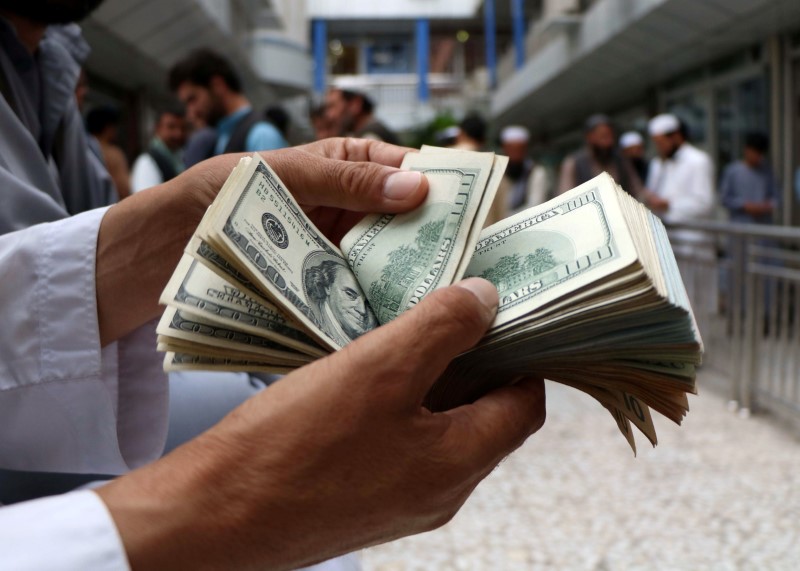(Bloomberg) -- The dollar’s weakness is giving central banks in Asia room to ease monetary policy further amid concerns that the region’s economic recovery is plateauing.
A 10% decline in the Bloomberg dollar index since its March high has stemmed a tide of capital outflows triggered by the coronavirus pandemic and drawn foreign investors back into Asia’s capital markets.
That dynamic strengthens local currencies and keeps a lid on inflation, giving central banks the option of reducing interest rates without being hemmed in by fleeing capital or rising prices.
While many are opting to hold rates for now, they have relatively more room to ease versus their global peers and have scope to unleash programs such as quantitative easing or use other targeted tools to spur lending.
“A weak U.S. dollar is on balance positive for Asian economies and good news for central banks,” said Janet Mui, an investment director at Brewin Dolphin (OTC:BDNHF) Holdings Plc in London. “The worst situation for an emerging market central bank is usually a slump in the local currency, capital outflows, rising inflation,” which would prompt rate hikes.
All Asian currencies have strengthened against the greenback since the Bloomberg Dollar Spot Index reached a peak in late March. Indonesia’s rupiah has led the advance, gaining more than 10%, while the South Korean won has risen almost 7%.
Growth Risks
The dollar reprieve comes as the resurgent coronavirus threatens to stall an already fragile economic recovery. Goldman Sachs Group Inc (NYSE:GS). warned last month that Asia-Pacific economies, which accounted for more than 70% of global growth in 2019, passed a major inflection point in June when the pace of the region’s reopening “slowed materially.” China and Vietnam are among very few economies in Asia projected to grow this year.
While economists say the bulk of emergency easing is likely over -- for example, China’s central bank is sticking to a restrained path -- more policy measures are still expected.
The Bank of Thailand this month held its benchmark interest rate at an all-time low and said it was prepared to use “additional appropriate monetary policy tools” to support an economy suffering the biggest blow in Asia from the coronavirus pandemic. India’s central bank also held its policy rate at a record low last week while outlining a range of measures to support a fragile banking sector.
New Zealand’s central bank is expected to hold steady when it meets Wednesday, though unemployment could pressure it to move again. Indonesia and the Philippines, which will announce policy decisions next week, have cut rates aggressively this year and are using other tools, such as reducing reserve ratios for banks, to support growth.
Reserves Boost
Downsides of dollar weakness include stronger local currencies which make exports less competitive.
Some central banks have capped appreciation by buying dollars or have taken advantage of the greenback’s weakness to restock their foreign currency reserves. China’s foreign currency holdings rose $54.9 billion, or 1.7%, from the previous month to $3.3 trillion in July. India has accumulated a record amount of foreign exchange reserves worth almost $535 billion.
Chua Hak Bin, senior economist at Maybank Kim Eng Research Pte. in Singapore, said the weaker dollar will allow officials to go beyond rate cuts and consider quantitative easing without fear of capital outflows. Indonesia’s central bank has already ventured into direct financing of the government.
“A weaker U.S. dollar may push some Asian central banks toward monetizing fiscal deficits and debt as the repercussions on their own currency and inflation will be smaller,” he said.
©2020 Bloomberg L.P.
